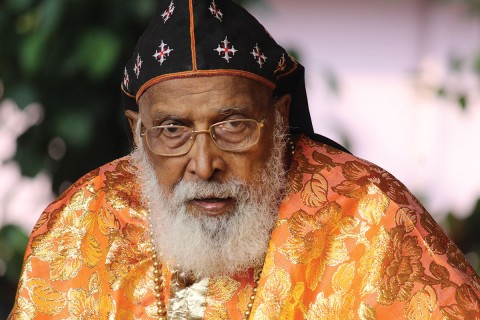The Pope Francis of India?
Bishop Philipose Mar Chrysostom worked with unlikely partners—including communist leaders in Kerala—to bring about social change.

When Philipose Mar Chrysostom died in May at age 104, he was credited as the longest-serving bishop in India, if not the world. As emeritus metropolitan of Mar Thoma Syrian Church, an ancient Christian community believed to have been founded by the apostle Thomas, Chrysostom was beloved by the people, but he also drew strong criticism for his radical thought and his cooperation with communist leaders on social justice initiatives. Theologian K. M. George noted that “but for his disarming humor and self-deprecating laughter, Mar Chrysostom would have been stamped a heretic by some of the traditional church circles . . . including his own.” He has been described as the Pope Francis of India.
Born Philip Oommen, he received the name Chrysostom when he was consecrated as a bishop in 1953. Roughly translated, the name means “golden tongued,” a fitting choice for a prelate known as much for his wit as for his good will. “He made religion a simpler thing to understand,” said A. M. Thomas, a professor at Mahatma Gandhi University. In his 68 years as a bishop, Chrysostom was present at the Second Vatican Council and three assemblies of the World Council of Churches.
But even more remarkable than his longevity was his role as a spiritual leader in his home state, Kerala, where the church and communism are equally strong. Chrysostom walked the fine line between the two throughout his long years of service, often bringing them together to effect lasting change.





